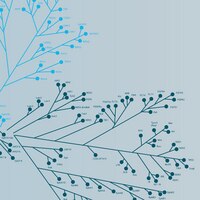Cdc25 mitotic inducer targeted by chk1 DNA damage checkpoint kinase.
Furnari, B, et al.
Science, 277: 1495-7 (1997)
1997
Show Abstract
Arrest of the cell cycle at the G2 checkpoint, induced by DNA damage, requires inhibitory phosphorylation of the kinase Cdc2 in both fission yeast and human cells. The kinase Wee1 and the phosphatase Cdc25, which regulate Cdc2 phosphorylation, were evaluated as targets of Chk1, a kinase essential for the checkpoint. Fission yeast cdc2-3w Deltacdc25 cells, which express activated Cdc2 and lack Cdc25, were responsive to Wee1 but insensitive to Chk1 and irradiation. Expression of large amounts of Chk1 produced the same phenotype as did loss of the cdc25 gene in cdc2-3w cells. Cdc25 associated with Chk1 in vivo and was phosphorylated when copurified in Chk1 complexes. These findings identify Cdc25, but not Wee1, as a target of the DNA damage checkpoint. | 9278510
 |
Conservation of the Chk1 checkpoint pathway in mammals: linkage of DNA damage to Cdk regulation through Cdc25.
Sanchez, Y, et al.
Science, 277: 1497-501 (1997)
1997
Show Abstract
In response to DNA damage, mammalian cells prevent cell cycle progression through the control of critical cell cycle regulators. A human gene was identified that encodes the protein Chk1, a homolog of the Schizosaccharomyces pombe Chk1 protein kinase, which is required for the DNA damage checkpoint. Human Chk1 protein was modified in response to DNA damage. In vitro Chk1 bound to and phosphorylated the dual-specificity protein phosphatases Cdc25A, Cdc25B, and Cdc25C, which control cell cycle transitions by dephosphorylating cyclin-dependent kinases. Chk1 phosphorylates Cdc25C on serine-216. As shown in an accompanying paper by Peng et al. in this issue, serine-216 phosphorylation creates a binding site for 14-3-3 protein and inhibits function of the phosphatase. These results suggest a model whereby in response to DNA damage, Chk1 phosphorylates and inhibits Cdc25C, thus preventing activation of the Cdc2-cyclin B complex and mitotic entry. | 9278511
 |













